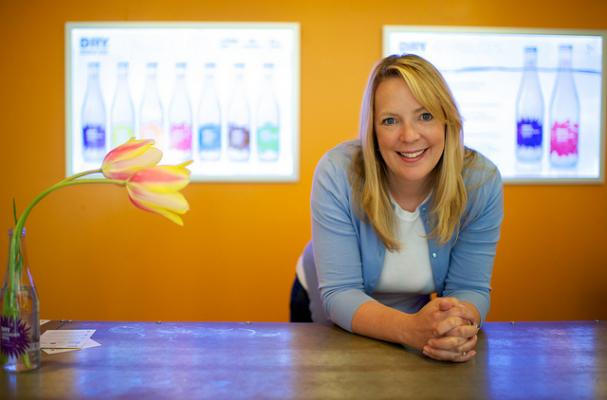
New York Mayor Micheal Bloomberg's proposed soda ban has been a hot-button issue among consumers. While many see the proposal as a step in the right direction to combat an obesity epidemic, others decry it as an affront to personal choice that discounts the role that personal responsibility plays in making healthier decisions. Soda companies have had their say, too. I had the chance to ask Sharelle Klaus, CEO and Founder of DRY Soda, some questions regarding her take on the proposed ban, the amount of sugar in drinks (including DRY Soda), and how soda is consumed in her home.
Was part of the reason for the creation of DRY Soda due to the amount of sugar in most soft drinks?
Yes, it was definitely my goal to create a soda that was less sweet and all natural. I even wanted the brand name to reflect this less sweet attribute – DRY Soda. We are becoming a nation with much higher expectations of our food and beverages, as we should. So by putting less pure cane sugar into the soda, we are able to better highlight the flavors. And obviously by putting less sugar in we are also cutting the calorie and sugar grams in the soda. DRY has ¼-1/3 the sugar of a regular soda.
Our newest flavor, Wild Lime, was created to directly take on America’s traditional soda makers. It’s a fresh take on a “typical” lemon/lime soda (it actually has lime extracts) and stands up to the taste test – with 1/3 the calories.
How is DRY Soda different than most sodas on the market?
DRY Soda has a quarter to a third of the sugar. It only has four ingredients that are all natural. DRY has a variety of flavors from the cuisine-inspired like lavender and rhubarb, to mainstream like blood orange, vanilla bean and wild lime.
Are you in favor of the soda ban in New York? Why or why not?
I think we are truly facing a major health issue with obesity in America. Mayor Bloomberg is trying to think outside of the box on how to help this issue. I believe we all need to look at creative ways to affect this epidemic. DRY Soda is doing this by creating a 12oz bottle of soda that is actually less sweet – not just artificially sweetened.
Are you concerned that soda (the word “soda”) has unfavorable connotations? How do you differentiate DRY Soda from other sodas?
We are really trying to revolutionize what people think about “soda.” Soda doesn’t have to be overly sweet, sugary and loaded with preservatives and high fructose corn syrup. DRY Soda is different, it’s simple. It gives people an opportunity to think about their beverage options and what else is out there in the “soda” aisle.
Though different than the most popular soft drinks that contain much more sugar, DRY Soda is still a sugar-added beverage. With so many “empty calories” from added sugar, both hidden and in plain sight, in the products many Americans eat and drink each day, how does DRY Soda fit in as a beverage among zero-calorie, zero-sugar options from water to diet energy drinks/sodas?
Real food is important to me and I believe to many Americans. I know I want to eat and drink the very highest quality foods and beverages, but that also means I have to eat in moderation. I believe we all deserve better than the “diet” or “no-calorie” options. We deserve real food. Pure cane sugar in moderation allows for the best tasting soda.
Recently Katie Bayne, Coca-Cola's President of Sparkling Beverages in North America, gave an interview talking about the beverages she drinks and her family drinks. As a parent, talk about how you have dealt with the issue of sugary drinks in your home and how DRY Soda fits in.
My youngest was only a year old when I started DRY. My pregnancies were what inspired me - I was looking for a better and natural beverage option. Now my four kids and their friends love DRY. They’ve helped me sample flavors and figure out recipes, they feel a sense of ownership in the brand. They drink DRY in addition to water, milk and other beverages, as part of a healthy diet. I really believe it’s important for kids to learn about healthy eating, using REAL ingredients, and showing them where their meals come from. That education helps them make healthy decisions as they mature.










